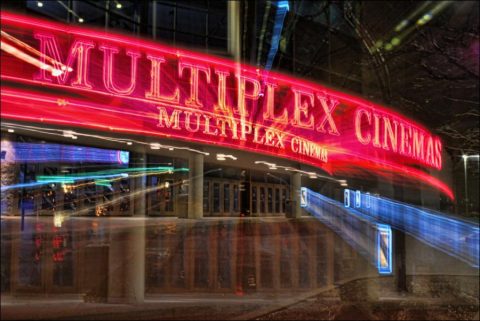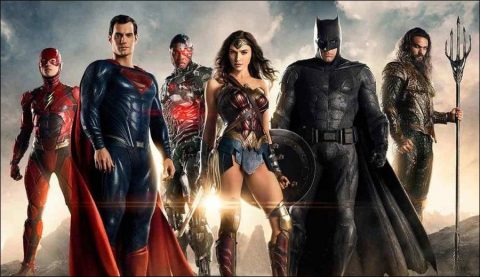New World Order and Digital Movies. Glance at any page of news about the movie business, and you’ll spot a headline announcing that Hollywood is dumbing down, that product placement is on the rise, and that dialogue is being whittled away to grunts and one-liners so that films can be exported with the minimum of redubbing. There are reports of cinemas closing, of piracy depriving the industry of zillions of pounds, of television offering more sophisticated narratives than its slow-witted multiplex cousin.
But the 100 inventive films in our selection indicate that, despite all this, we may actually be living in a golden age of cinema. It’s notable that the tally doesn’t rely on the giants of the late 20th Century: Spielberg and Scorsese have just one film apiece; Mike Leigh, Ken Loach, Werner Herzog and the Dardenne brothers are absent; and the only Coppola represented isn’t Francis but his daughter Sofia. And yet the old guard is hardly missed. There is a wealth of astonishing films out there if you know where to find them – and knowing where to find them has never been easier.
Critics have an unfair advantage when it comes to happening upon the best stuff, admittedly. If you’re lucky enough to be paid to write about film, or, better still, to report from festivals which serve up the cream of the crop, you may well have a rosier view of the state of cinema than someone who has to choose between Suicide Squad and The Legend of Tarzan on a Friday night.
But none of us is as far from a life-enhancing film as we used to be. In the 20th Century, anyone who was in the mood for a monochrome musing on the roots of Nazism (The White Ribbon: 18) would have had a tricky job. Even in the heyday of art-house cinemas and video stores, you had to wait a long time for a particular auteurist gem to wash up on your shores – and that’s assuming you had heard of it at all. But in the 21st Century, anyone with an internet connection should have no problem venturing beyond films that depict cities being flattened in 3D.
We’re all just a click or two away from an intriguing trailer on YouTube, an appetite-whetting essay on a scholarly website, and an enthusiastic discussion in a message board. Another few clicks and we can order the film itself, either on DVD or download. It’s true that watching a taut Iranian domestic mystery (A Separation: 9) at home may not be the same as seeing it in a crowded cinema. But – for the film-maker as well as the viewer – it’s better than not watching it at all.
Let’s get digital
This brave new globalised world has its complications, of course. As studios grow ever more reliant on international sales and merchandising, they pour more and more of their resources into superhero and science-fiction blockbusters. The campaigning dramas, prestigious crime thrillers, and respectable literary adaptations which used to attract both audiences and awards in the 1980s and ‘90s are withering away.
Directors often grumble about this trend. Rather than being able to tell grown-up human stories about contemporary life, they’re having to default either to megabudget sci-fi extravaganzas or to tiny indie films. But there is a bright side to this polarising effect, which is that the 21st Century has seen the death of so-called awards bait. The days are gone when Harvey Weinstein could snag the film rights to a bestselling novel, hire Lasse Hallström to direct a middlebrow, mid-budget, middle-of-the-road film version, and watch as the Oscar nominations rolled in.
Instead, directors either have to give blockbusters their own idiosyncratic stamp – as George Miller did on Mad Max: Fury Road (15) and Christopher Nolan did on The Dark Knight (33) – or they have to put their energies into more experimental and personal projects. And while it may be a chore to get financing for these outré films, our list is inspirational proof that it is possible. Again, this has a lot to do with digital technology. Leos Carax shot Holy Motors on digital video, under protest, because he couldn’t secure the funding to use film, but the resulting oddball masterpiece is so fundamentally digital-ish in its look and feel that it’s hard to imagine it any other way.
Carax isn’t alone in being attached to film, rather than DV. Apichatpong Weerasethakul has said that Uncle Boonmee Who Can Recall His Past Lives (37) is, among other things, his lament for the demise of celluloid – and you can’t be in a room with more than three cinephiles without one of them waxing lyrical about the weight of a film canister and the purr of a projector. Digital tends to be scorned as a cheap and nasty substitute.
But even cineastes who grouse about DV on a regular basis are having to acknowledge that it is opening up all sorts of fascinating possibilities. Most obviously, there are the cartoons, such as Pixar’s WALL-E (29), Inside Out (41) and Finding Nemo (90), which wouldn’t exist without computer animation. (And without Pixar, computer animation wouldn’t exist in its current form, either.)
Then there are the films which take digital technology as their subject matter, such as Michael Haneke’s Caché (22) and David Fincher’s The Social Network (27). And there are others still which use this technology to make sublime art: watching the mesmeric prologues to Terrence Malick’s The Tree of Life (7) and Lars von Trier’s Melancholia (42) are as close as some of us ever get to a religious experience.
This is just the beginning. As digital cameras continue to get lighter and better, and streaming continues to get faster, it will become feasible for anyone not just to make their own film, but to send it around the planet. Already, it’s not unusual for a film to be shot in one country, edited in another, scored in a third. Soon, we will be able to talk about ‘world cinema’ in ways we never have done before. And it’s all because of developments that have taken place in the 21st Century. Here’s to the next 83 years.
The 21st Century’s 100 Greatest Movies.
Hits: 89





